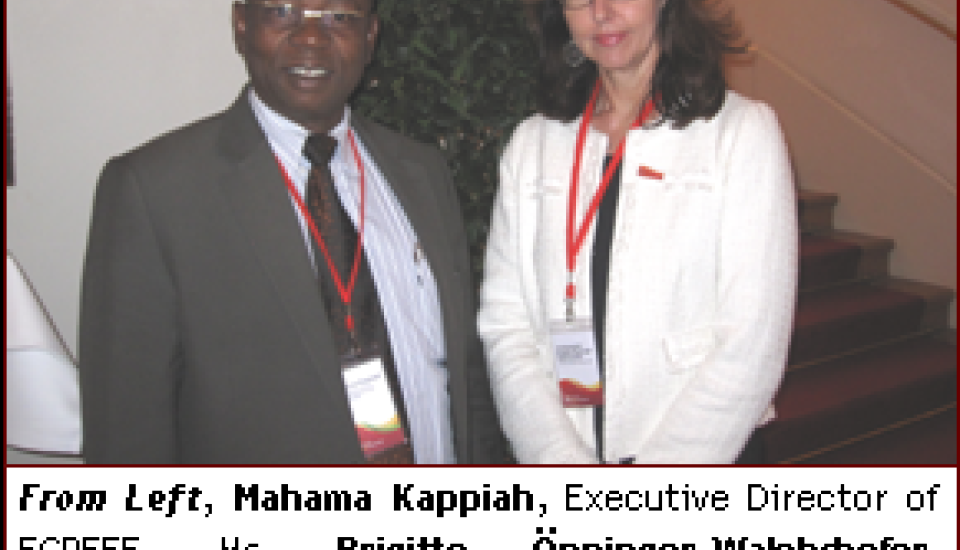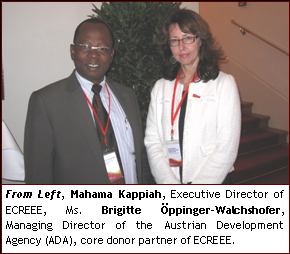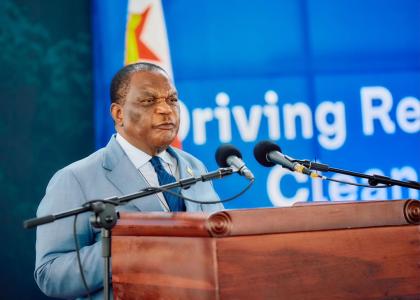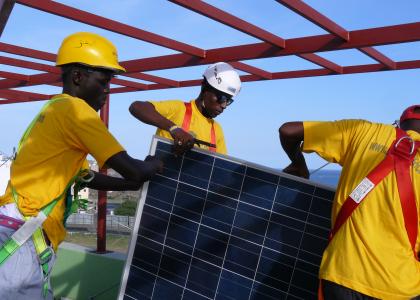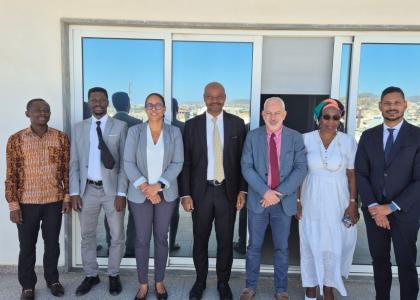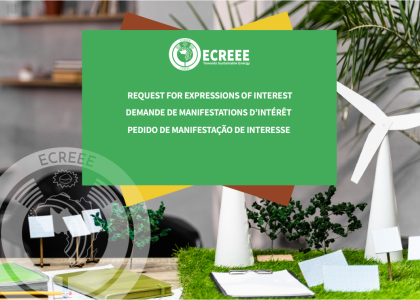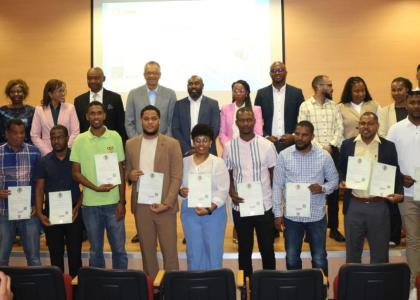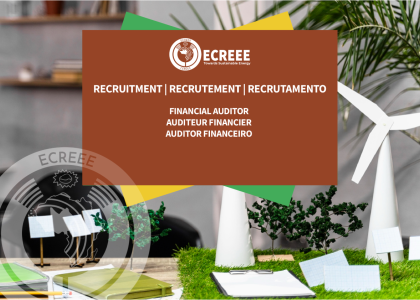September 2010 in Vienna
Partnership Meetings with UNIDO, ADA, AEA and REEEP
ECREEE discussed the 2010 work plan with Ms. Brigitte Öppinger-Walchshofer, Managing Director of the Austrian Development Agency (ADA), a core-partner of ECREEE. She stressed the importance of private sector involvement in the RE sector and suggested to create synergies between the investment related ECREEE activities and the private sector instruments of ADA, the Austrian Development Bank or Austrian Export Credit Agency.
The cooperation concerning the planning and execution of GEF projects was discussed with Mr. Pradeep Monga, Director of the UNIDO Energy and Climate Change Branch and Mr. Alois Mhlanga, responsible UNIDO manager of the ECREEE project. In pursuance to the meeting, a common proposal for the promotion of RE&EE coherence and knowledge management was submitted to the GEF for approval. The project foresees the creation of an ECOWAS RE&EE observatory.
ECREEE also visited Ms. Marianne Ostercorn, Director General of the Renewable Energy and Energy Efficiency Partnership (REEEP) at the Vienna International Centre. A MoU was singed and it was agreed that ECREEE acts as the REEEP focal point in West Africa.
With the Austrian Energy Agency (AEA) the cooperation regarding the project “Supporting Energy Efficiency for Access in West Africa (SEEA-WA)” to be co-funded by the ACP-EU Energy Facility was discussed. AEA has long-standing expertise in public consulting in the area of energy efficiency in transformation countries. ECREEE will work closely with AEA and the French Agence de l'environnement et de la maîtrise de l'énergie (ADEME).
Visit to the ECO Renewable Energy Cluster in Graz/Gleisdorf
ECREEE visited pioneering competence centers and companies in the solar-thermal, bioenergy and small-hydropower sectors in the region of Graz/Gleisdorf. Mr. Werner Weiss, Managing Director of the Institute for Sustainable Technologies (AEE-Intec) organized field visits to solar thermal warm water and district heating as well as cooling projects. Solar thermal warm water heating, cooling and process heat projects are commercial and technically feasible options which can lower the urban peak load particularly in countries with hot climate.
Mr. Weiss reported on the progress of the regional solar thermal program “SOLTRAIN” which AEE-Intec is executing in cooperation with universities in Southern Africa.
Mr. Harald Blazek and Mr. Christian Holter from the solar company SOLID gave an introduction into their activities regarding large-scale solar cooling applications worldwide. The environmental expert, Mr. Emil Benesch from the World Wildlife Fund Austria (WWF) gave an overview on the energy activities of the organization.
Visit to the energy self-sufficient region of Güssing
Mr. Kappiah discussed the possible application of the “rural renewable energy model of Güssing” in the West African context with experts of the European Centre for Renewable Energy. The Austrian city of Güssing reached self-sufficiency from fossil fuels through the introduction of various RE technology options for heating, cooling, electricity generation as well as biofuel production.
Güssing is a district-capital of a region with approx. 27,000 inhabitants and was one of the poorest districts in Austria in 1988. There was no significant industry or trade business - jobs were scarce, and a high rate of migration to other regions was the consequence. High energy costs (for oil, electricity, gas) meant a substantial capital outflow from the region, but existing resources like the 45% of forest remained largely unused.
To boost regional development, the local authorities initiated a radical shift of the energy system in favour of locally available RE resources. The introduced model included EE improvements, the installation of one biodiesel plant, two biomass combined heat and power plants as well as PV and solar thermal applications. Today, Güssing annually produces more energy from RE than actually can be consumed. The benefit to the whole region is an added economic value of more than 13 million Euro per year.

